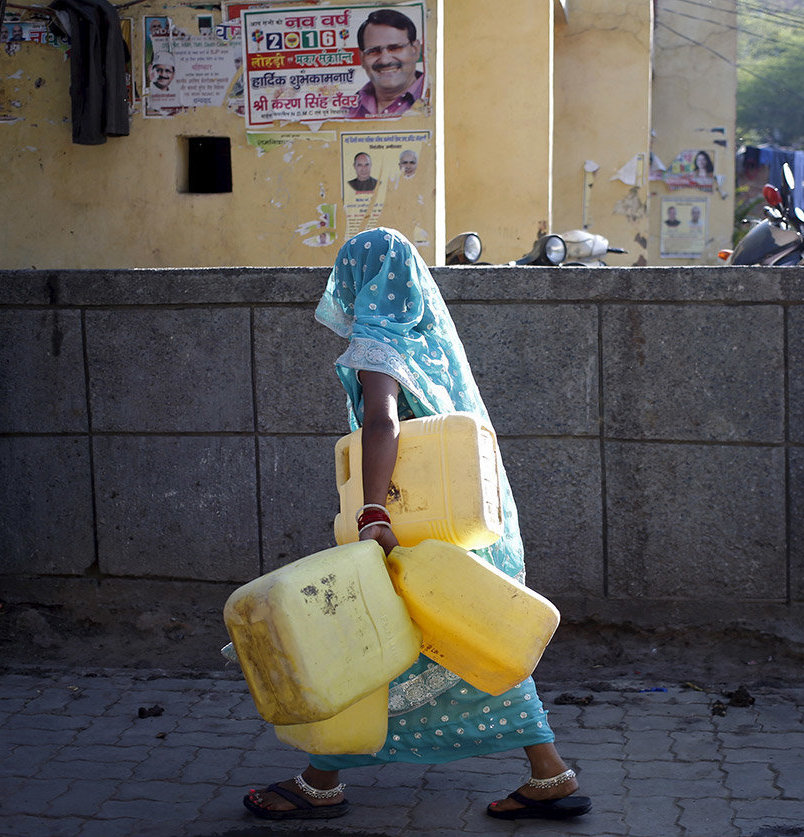10m without water in Indian capital as caste protests continue to bite
As many as 10 million people in India’s capital are without water following three days of rioting over jobs for ‘lower caste’ people. Keshav Chandra, head of Delhi’s water board, told the BBC it would take “three to four days” before normal supplies resumed to affected areas. But there was relief for New Delhi’s 20 million residents as the army retook control of their main water source, the Munak canal in neighbouring Haryana state, from the protesting Jat community. About 16 people have died and hundreds have been injured in clashes between the Jats and security forces.
We will continue the protests. The government thinks we will succumb to their pressure tactics but they are making a big mistake by ignoring us.
Ramesh Dalal, convenor of the Jat Arakshan Andolan (Jat Reservation Movement
Thousands of troops have been deployed to quell protests, which flared again on Monday near Sonipat as protesters set fire to a freight train. In Bahadurgarh, to the west of Delhi, Jat protesters were out in force, expressing their anger against Prime Minister Narendra Modi and demanding written assurances of more government jobs for their community, which makes up a quarter of Haryana’s population. Many Jats, who number more than 80 million across north India, are farmers whose livelihoods have suffered as families divide farms among their children while two years of drought have harmed their crops. It was later reported a deal had been struck to end the protests, although details of what had been offered were scare.
They are now hatching conspiracies every day to finish and defame me.
Prime Minister Narendra Modi

Delhi water